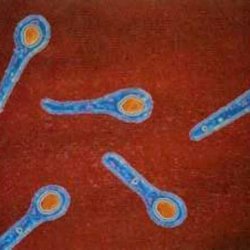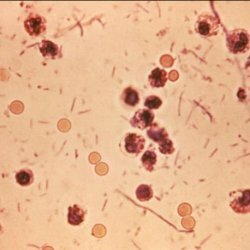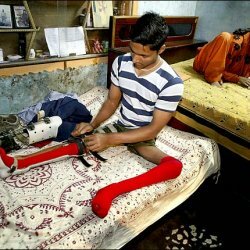What to take with rotavirus infection?
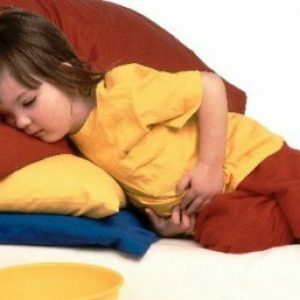 Rotavirus infection is a disease caused by viruses from the family Reoviridae.According to the WHO statement, around 25 million cases of rotavirus infection are registered worldwide every year around the world, 3% of which are lethal.
Rotavirus infection is a disease caused by viruses from the family Reoviridae.According to the WHO statement, around 25 million cases of rotavirus infection are registered worldwide every year around the world, 3% of which are lethal.
Causes of rotavirus infection
Infection is transmitted by a fecal-oral route from a sick person to a healthy one.People of all ages are susceptible to rotavirus, however, young children are more sensitive.
Rotavrius accumulates and multiplies in the upper intestine.The virus kills mature cells of the intestine, which are soon replaced by immature ones.Such cells can not fully absorb carbohydrates, as well as other nutrients.These unsplit substances have high osmotic activity and provoke disturbances in water reabsorption.This is how diarrhea develops.
Abundant diarrhea leads to a significant loss of fluid. This condition is extremely dangerous for infants.At them dehydration is capable to develop literally for some hours against a background of a diarrhea and a vomiting. It is the consequences of severe dehydration that lead to fatal outcomes among children with rotavirus infection.Therefore, when signs of acute intestinal infection appear in children, treatment should be started immediately.

Principles of treatment
There is no etiotropic treatment for rotavirus infection. Antiviral agents in the treatment of infection do not apply, antibacterial agents are completely useless. Treatment of rotavirus infection is directed, first of all, to correction of water-electrolyte balance.
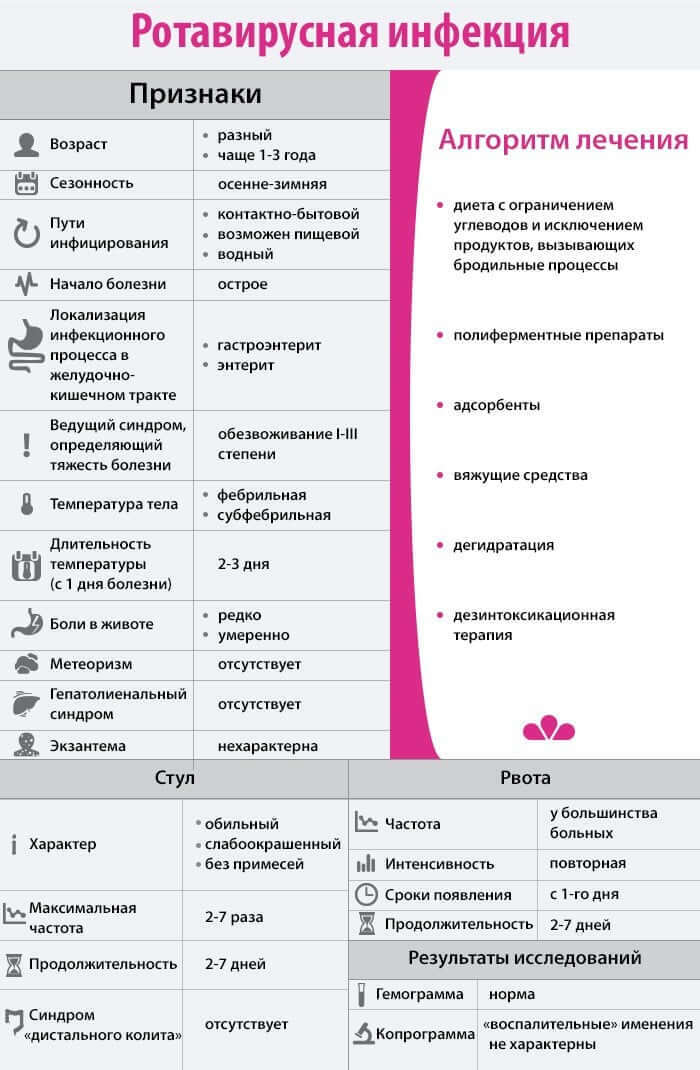
Rehydration therapy
Rotavirus infection is characterized by profuse diarrhea, which leads to loss of fluid and minerals.The primary task in the fight against rotavirus infection is to restore the lost volume of fluid.When dehydrating I-II degrees, rehydration is performed by oral means.
WHO recommends the use of such a solution: sodium chloride - 3.5 g, potassium chloride - 1.5 g, sodium bicarbonate - 2.5 g, glucose - 20 g per liter of water. The adult should drink the solution in small portions( 40-100 ml) every ten minutes.Such a solution is used in inpatient treatment.
A at home can be prepared another simple solution: two tablespoons of sugar, a teaspoon of baking soda, salt per liter of boiled water .To drink a child with this solution you need small portions.This is an emergency option, when there are no medications at hand. In the future pharmacies need to buy ready-made rehydration solutions for oral administration, such as:
- Regidron( the most popular drug);
- Oralit;
- ОRS-200;
- Touring;
- Humana Electrolyte( there are special forms for children);
- Super-OPC.
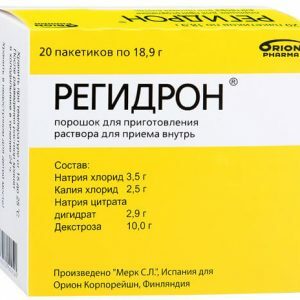 Similar solutions are prepared very simply.For example, to prepare a solution of Regidron it is necessary to pour a packet of medicine into a liter of boiled cool water.The resulting solution should be drunk in small sips after each liquid bowel movement.
Similar solutions are prepared very simply.For example, to prepare a solution of Regidron it is necessary to pour a packet of medicine into a liter of boiled cool water.The resulting solution should be drunk in small sips after each liquid bowel movement.
Young children need to drink from a spoon.If the child refuses to drink, you can dial the solution into a syringe without needles and thus water the baby.During the first four to ten hours of treatment, a child up to three years of age can be administered up to 30-60 ml / kg of body weight.Then give the baby 10 ml / kg body weight after each liquid bowel movement.In addition to the prepared solutions, you should also drink fruit drinks, herbal tea and ordinary drinking water.
Please note! Rehydration solutions do not reduce the frequency of the stool.Their purpose is to prevent severe consequences caused by dehydration, which is especially important for young children.
For severe dehydration, rehydration is performed by intravenous administration of solutions. These are preparations such as:
- Trisol;
- Acesol;
- Cholol, etc.
Symptomatic therapy
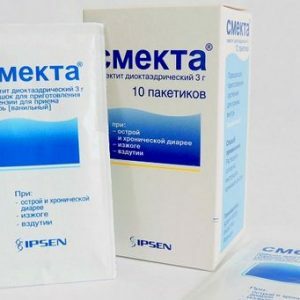 Approximately 95-97% of patients with rotavirus infection have violations of the normal composition of microflora.To restore the microflora prescribe probiotics( Lineks, Bifiform).
Approximately 95-97% of patients with rotavirus infection have violations of the normal composition of microflora.To restore the microflora prescribe probiotics( Lineks, Bifiform).
When rotavirus infection shows the use of enterosorbents( activated charcoal, Atoxil, Smecta, Enterosgel).These drugs absorb free viruses, undigested carbohydrates and remove them from the body.To improve digestive processes, enzymes are used( Festal, Mezim, Panzinorm).
With rotavirus infection, body temperature may increase.It can only be knocked down when it exceeds the 38 degree mark.For these purposes, Paracetamol, Ibuprofen, is suitable.These antipyretic drugs are safe for children.
Diet for rotavirus infection
During an acute period of infection, the intake of carbohydrates, sugar, bakery and flour products, milk, vegetables, fruits, meat and fish should be restricted in the diet of the patient.But this does not mean that the child must starve, this will only aggravate the course of the disease.You can feed the child with rice, mashed potatoes, crackers.
In this case, young children who are breastfeeding, do not stop feeding milk.Breast milk contains secretory immunoglobulins, trypsins, which facilitate the course of infection in the baby.If the child eats artificial mixes, it must be transferred to feeding low- and lactose-free mixtures.
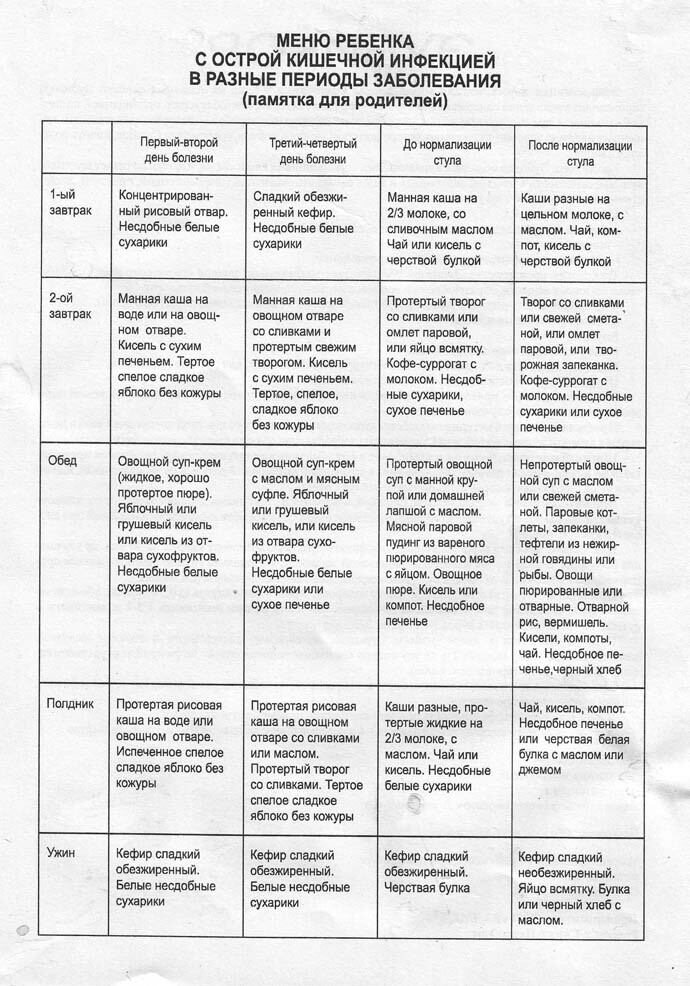
How to treat rotavirus in adults
In adults, rotavirus infection is usually less asymptomatic and lighter than that of children.Principles of treatment are identical.This, first of all, restoration of the optimal water-electrolyte balance.Adults during the first four to six hours of treatment need to drink Rehydron to 500-1000 ml, then 200 ml after bowel movement.Treatment with the drug is carried out for three days and is completed after the cessation of diarrhea.
It is also necessary to use enterosorbents, enzymes, probiotics.As a rule, in adults with rotavirus infection, the body temperature does not increase significantly, and therefore there is no need to use antipyretics.
Grigorova Valeria, medical reviewer

